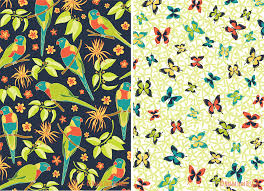In the textile design industry, you can use your creative flair and ability to generate ideas and concepts for creating innovative clothing and interior designs
Job options
Jobs directly related to your degree include:
- Clothing/textile technologist
- Colour technologist
- Interior and spatial designer
- Fashion designer
- Textile designer
Jobs where your degree would be useful include:
- Conservator
- Further education teacher
- Graphic designer
- Higher education lecturer
- Printmaker
- Product designer
- Retail buyer
- Secondary school teacher
- Stylist
- Visual merchandiser
Work experience
Work experience in a design-related area, through holiday work or course placements, is essential for getting into the industry. Experience gained in the retail sector, for example, will help demonstrate your enthusiasm and commitment to the sector, as well as developing your commercial awareness.
It's important to build up relationships with more established designers, fashion houses and design companies in order to get commissions and placements. Make the most of your course by entering competitions, visiting industry and trade shows, and exhibiting your work. You can also make contacts through your course tutors, most of whom work in the industry in addition to their teaching work.
There may be opportunities for voluntary work in art therapy or community arts for textile design graduates. This will build contacts and experience and may lead to paid work. Extracurricular activities such as private commissions or making your own clothes will also help build up your portfolio.
Typical employers
Employers of textile design graduates include:
- design studios and consultancies
- large fashion and design companies
- small specialist design companies
- manufacturing and processing companies that produce clothing, soft furnishings and other textile-based products
- interior design and decoration services
- private clients.
Textile design is a global industry and you may find opportunities to work abroad or with an international company.
Many designers work on a freelance basis and some choose to set up their own business, often designing and producing work for exhibitions, direct sale or through retail craft outlets.
You may choose to follow a portfolio career, combining several jobs such as design practice together with teaching, community arts work or curating.
Skills for your CV
Textile design students develop an understanding and experience of using different textile processes and techniques, such as:
- constructed textiles (such as knitted, woven, stitched and manipulated textiles)
- digital textiles (focusing on textiles for fashion or interiors)
- mixed media textiles.
You also learn to use computer-aided design (CAD), critically evaluate and interpret materials, research designs and predict trends, and communicate with clients, manufacturing staff, buyers and retailers.
Other useful skills include:
- the ability to work independently, set goals, manage your own workload and meet deadlines
- project management - to see the design project through from conception to completion
- attention to detail
- IT and technical skills
- marketing and commercial awareness
- the ability to work effectively with others through collaboration, team work and negotiation
- communication and presentation
- the ability to work to deadlines and a budget
- research and analytical skills
- resourcefulness.








